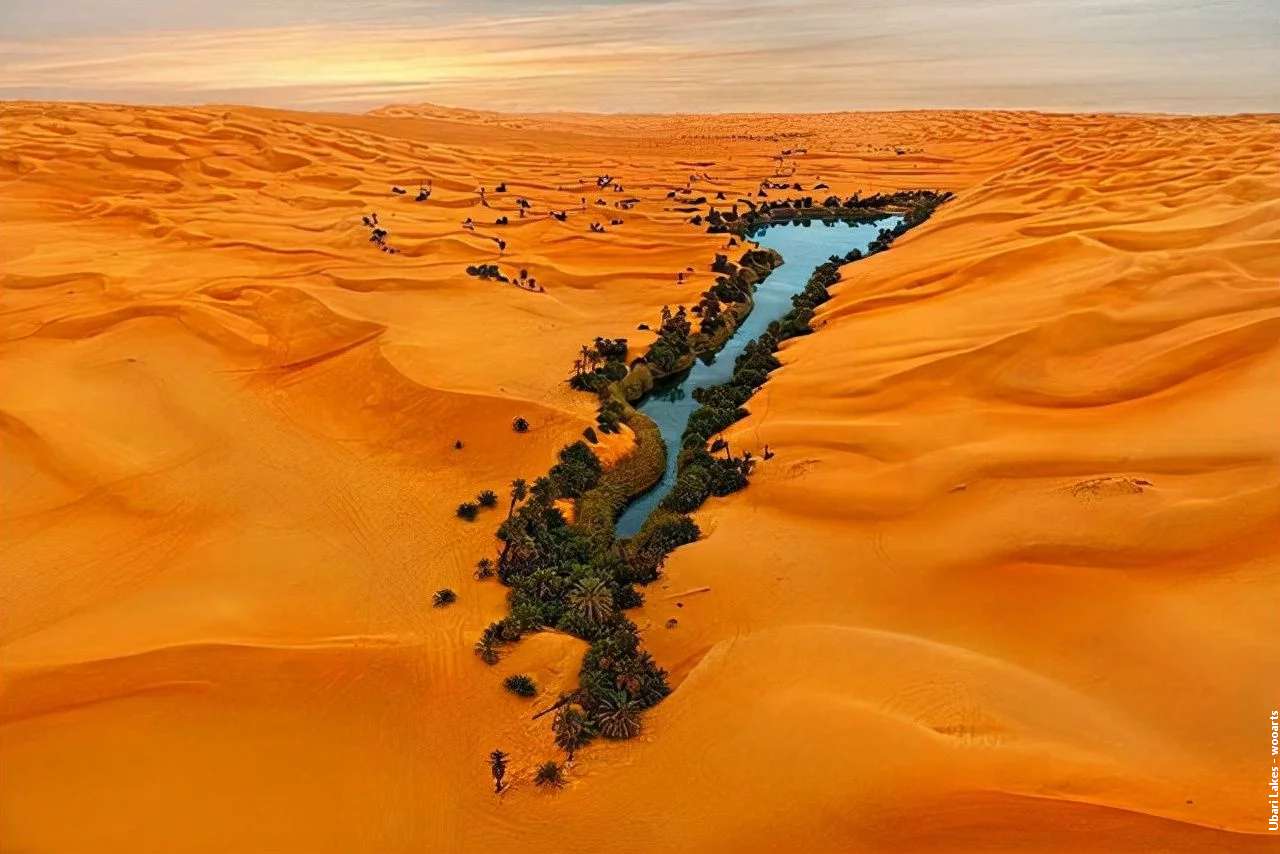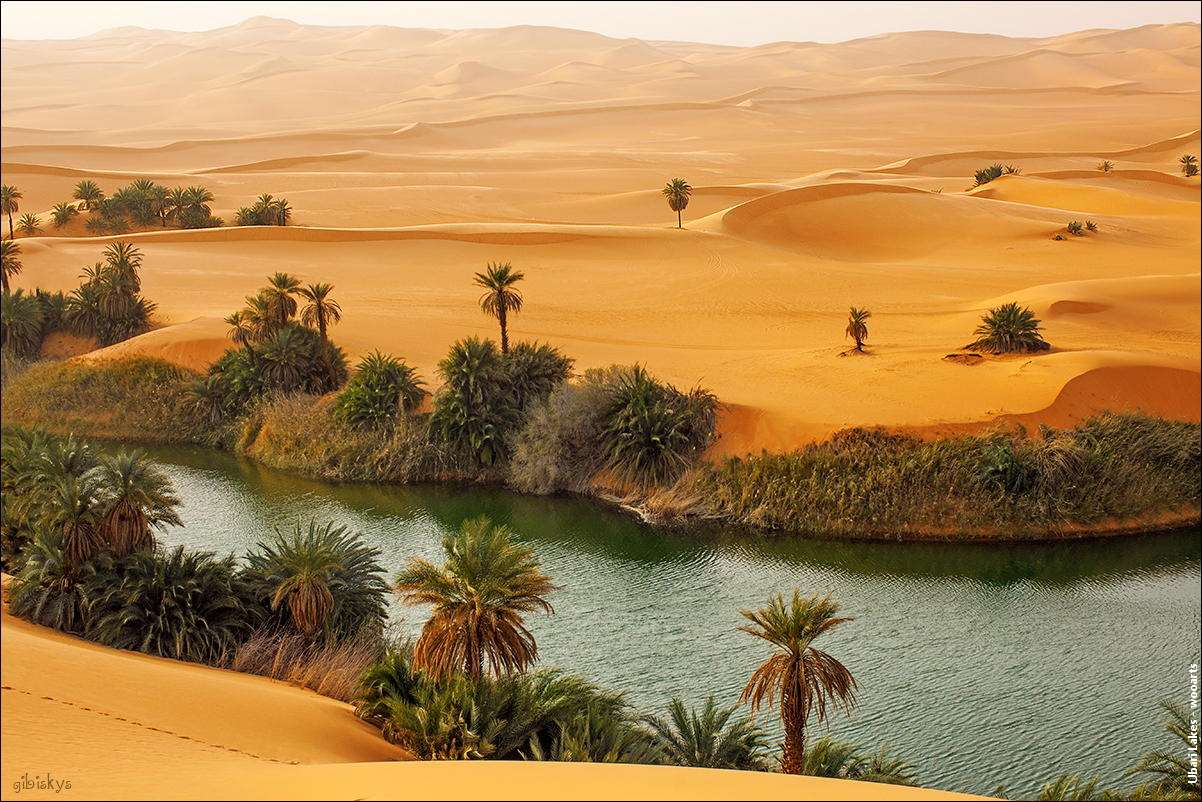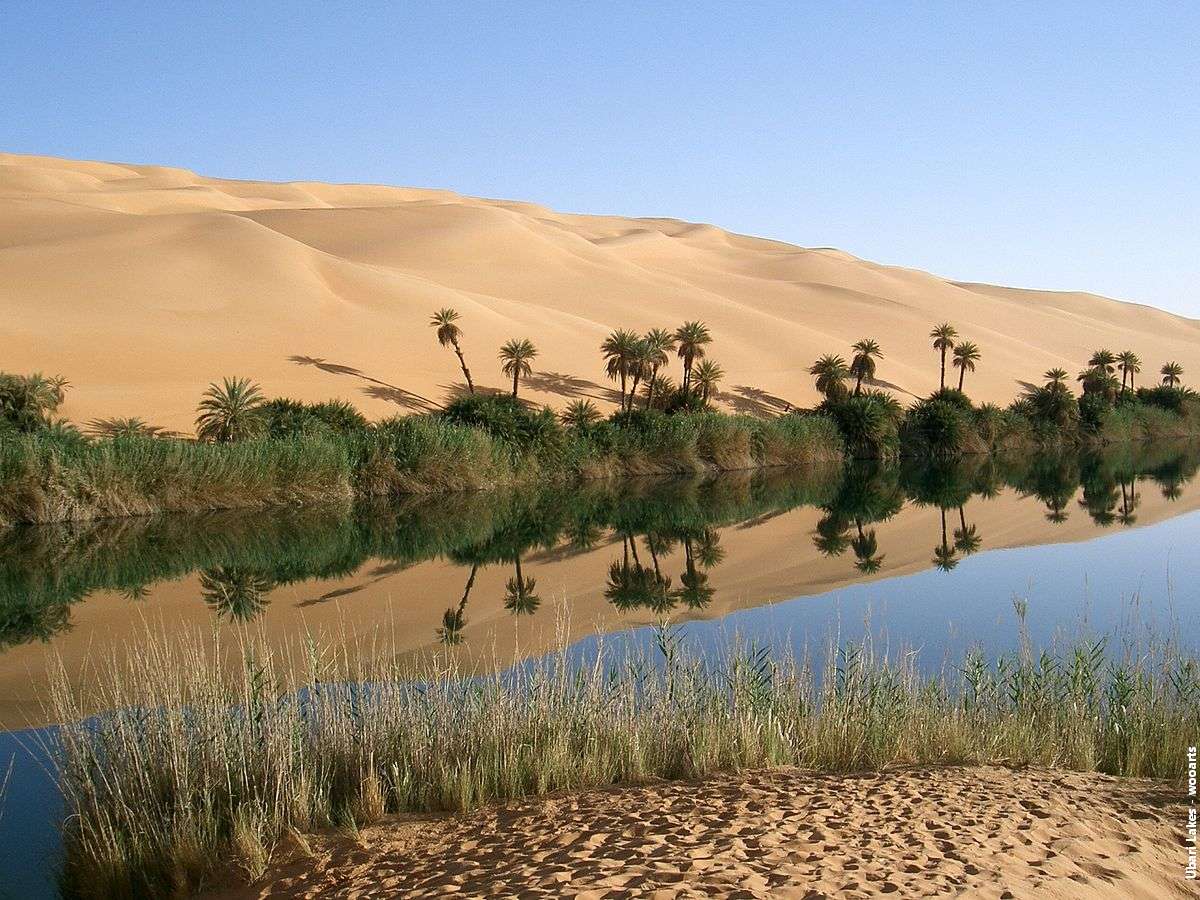Even by barren-desert standards, the Libyan Desert is a harsh environment. This region of the Sahara Desert spreads across 420,000 square miles of North Africa, where average summer temps can exceed 120 degrees.
And in Ubari, the locale in our image, the annual rainfall average is said to be one of the world’s lowest. But as we can see, Ubari is an oasis town, with Umm al-Maa (Mother of Waters) just one of the lakes glimmering among the ergs.
These lakes, fed by underground aquifers, nourish date palms and wetland grasses that grow along the shore. What they don’t do is quench a thirst—the water here is even saltier than the sea.
“The desert, when the sun comes up. I couldn’t tell where heaven stopped and the Earth began.“
– Tom Hanks

The Ubari Sand Sea is a vast area of towering sand dunes in the Fezzan region of south-western Libya. But 200,000 years ago, this was a wet and fertile region with plenty of rainfall and flowing rivers. These rivers fed a vast lake, the size of Czech Republic, in the Fezzan basin called Lake Megafezzan. During humid periods the lake reached a maximum size of 120,000 square kilometers. Climate change caused the region, a part of Sahara, to gradually dry up and between 3,000 to 5,000 years ago, the lake evaporated away into thin air. Traces of this great lake still exist today in the form of micro lakes scattered among the towering dunes like wet patches in the desert. Currently there are about 20 lakes in the Ubari Sand Sea – beautiful palm-fringed oases that appear like anomalies in the harsh desert environment.
“But in the desert, in the pure clean atmosphere, in the silence – there you can find yourself.”
– Father Dioscuros
Among the most picturesque of the lakes are Gaberoun and Umm al-Maa (the Mother of Water). Located besides the ruins of the old village, Gaberoun is the one tourists mostly visit. There is a rudimentary tourist camp on the shore, including an open patio, sleeping huts, and a souvenir shop. There are two more beautiful lakes – Umm al-H’isan (the Mother of the Horse), also spelt as Oum El Hassan, located north of Gaberoun; and another one at Tarhouna, about 11km from Umm al-H’isan. These are, however, rarely visited by tourists.
“If a flower can flourish in the desert, you can flourish anywhere.”
– Matshona Dhliwayo
The Ubari lakes are very salty. This is due to the fact that these lakes are being continuously evaporated and have no rivers replenishing them (Libya has no perennial rivers that persist year-round). This has caused the dissolved minerals in the lake waters to become concentrated. Some of these lakes are nearly five times saltier than seawater. Some take on blood-red hue from the presence of salt-tolerant algae.
“The desert is a natural extension of the inner silence of the body.”
– Jean Baudrillard
Although the Ubari Lakes are not exactly shallow, ranging from 7 to 32 meters in depth, they are at the risk of drying out. The waters in Sahara’s underground aquifers, that were deposited tens of thousands of years ago in much wetter times, is limited and this is already declining thanks to the increasing use of aquifer water by growing human populations. About three decades ago the Libyan government undertook an ambitious project called Great Man-Made River, aimed at drawing water from the aquifers beneath the Fezzan region via a network of underground pipes to make the desert bloom. The project, if successful, will drain these enormous reserve of fresh water in just 50 to 100 years.
“All you have to do is contemplate a simple grain of sand, and you will see in it all the marvels of creation.”
– Paulo Coelho
Kaushik Patowary Apr 4, 2015
Desert Poem
Down from the mesa’s wind-blown height,
While sunset fires the western steep,
Toward the low shelters of the night
The herder guides his sheep.
They huddle by, sun-drowsed and mute,
As following some magic flute
Four thousand banded sheep, and more,
Across the dusty desert floor.
How many ages, long since hid,
Mankind has shepherded his flocks!
On far Judean plains or mid
The Attic hillside rocks
And here today they seem to wear
An undefined, sweet ancient air,
Shuffling through the sunset glow
As through a world of long ago.
by Grace C. Howes








